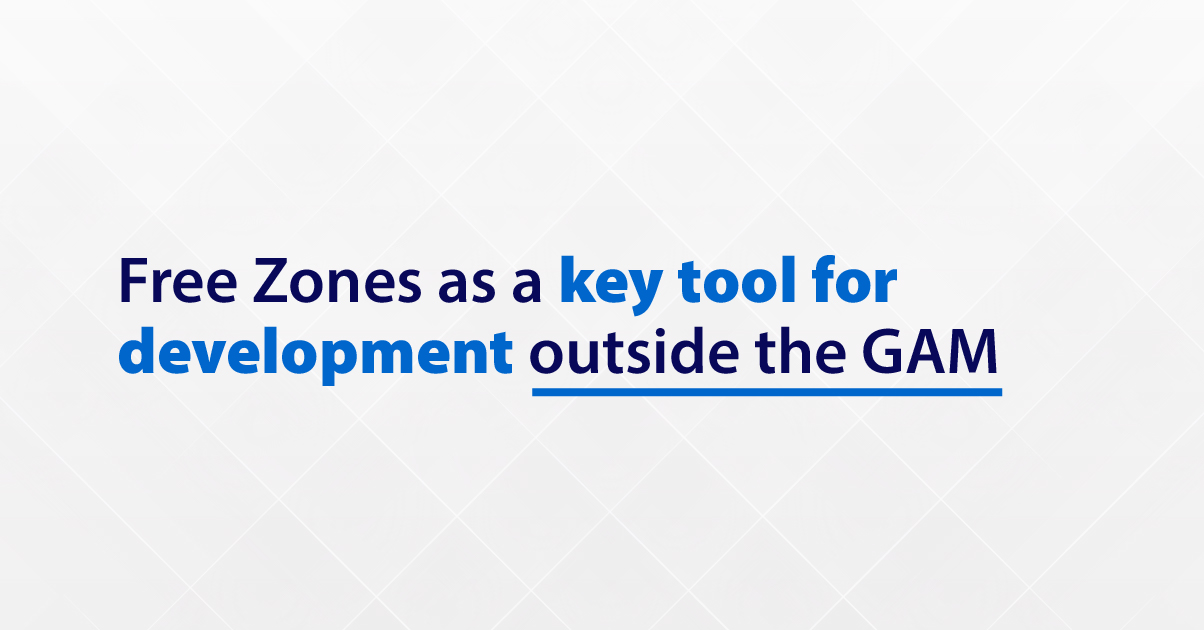By Shermine Elizondo
Senior Associate
Costa Rica
[email protected]
Member of the Operations and Customs Affairs Work Commission of AZOFRAS A BLP associate specializing in Customs and Free Zones.
Foreign Direct Investment (FDI) is understood as capital investment by a natural or legal person in a foreign country, either through the installation of new production plants or the participation in companies established within the country to form a subsidiary of the investing company. FDI is considered a fundamental pillar of the economic development policy of countries, especially for those such as Costa Rica that use development models based on international trade.
The Free Trade Zone Regime (FTZ) is the main incentive that the country uses to compete with other countries in the region in attracting FDI.
FDI generates high-quality sources of employment, encourages the transfer of new technologies, drives exports, and promotes productive linkages with businesses in the receiving country. It contributes to a country’s GDP, improves the national standard of living, increases social security contributions, generates better consumption opportunities, and stimulates competition, all of which positively affect the host’s productive and competitive environment.
For these reasons, both public and private sector institutions in Costa Rica, such as the Ministry of Foreign Trade (COMEX), the Foreign Trade Promoter (PROCOMER), the Costa Rican Coalition of Development Initiatives (CINDE), and the Association of Companies of Free Zones of Costa Rica (AZOFRAS), have been carrying out a series of works, from their different fields of action, to strengthen the FDI already installed in the country, as well as to make Costa Rica a more attractive country for new investors.
The contributions of these institutions have qualified Costa Rica as one of the countries that lead the world in attracting new FDI, despite the pandemic, ending 2021 with a 30% increase in new investment projects compared to the previous year, according to CINDE
data. Increasing the installation of new companies in the FTZ encourages and promotes the attraction of Foreign Direct Investment.
However, most of the FDI that enters or reinvests in the country takes place in the Greater Metropolitan Area (GAM), which means that not the entire population has direct access to its benefits. Therefore, it is essential that, as a country, the necessary actions be carried out to encourage and attract FDI outside GAM and in this way expand the positive effects throughout the national territory, improving conditions and well-being in rural areas, as well as the country’s urban settings.
To expand the effects of FDI, Cinde began more than 5 years ago a project to promote non-GAM investment which has resulted in 15% annual growth in employment by multinational companies outside GAM, and, in addition, promoted the Bill No. 22,607 ¨ Law to Strengthen Territorial Competitiveness to Promote the Attraction of Investments outside the Greater Metropolitan Area (GAM), which is currently before the Legislative Assembly with a unanimous affirmative opinion.
This Bill aims to generate favorable conditions to increase investments with a direct impact on territorial competitiveness, growth and economic reactivation, the attraction of foreign and national investment, the promotion of productive chains, and the generation of employment outside the GAM through specific reforms and additions to certain laws adapted to the reality of the country’s rural areas.
To meet these objectives, the initiative would expand beneficiary sectors of the Free Zone Regime, adjusting them to the regional reality outside GAM by including 3 new categories:
- Providers of agricultural, livestock, and fishing supplies.
- Health services centers.
- Sustainable adventure parks.
In addition, the Bill promotes productive linkages in regions outside the GAM that would give the sectors a greater opportunity to meet the requirements for initial new investment by reducing the cost of entry. It also seeks to streamline procedures and obtain permits through the Single Investment Windows (VUI) and provides support in the training of human talent and attraction of qualified personnel to promote territorial roots and knowledge transfer.
Furthermore, it calls on the competent Authorities to include connectivity plans in communities outside the GAM, reduce water and electricity rates and, in an innovative way, authorize non-GAM park management companies to generate renewable electricity for self-consumption and to supply the service free of charge to companies installed or to be stationed in rural parks under the Free Trade Zone system.
Therefore, it is evident that the Project offers viable and effective alternatives for attracting and maintaining FDI outside GAM, becoming an instrument to achieve the economic reactivation that the country so badly needs, particularly the outlying areas most affected by the pandemic.
To be clear, the Bill on territorial competitiveness must be approved as soon as possible and the required actions carried out by all those involved for its effective implementation. In this way, the country begins to realize the economic, educational, social, and cultural potential of the entire population and not just some.
Originally published at




